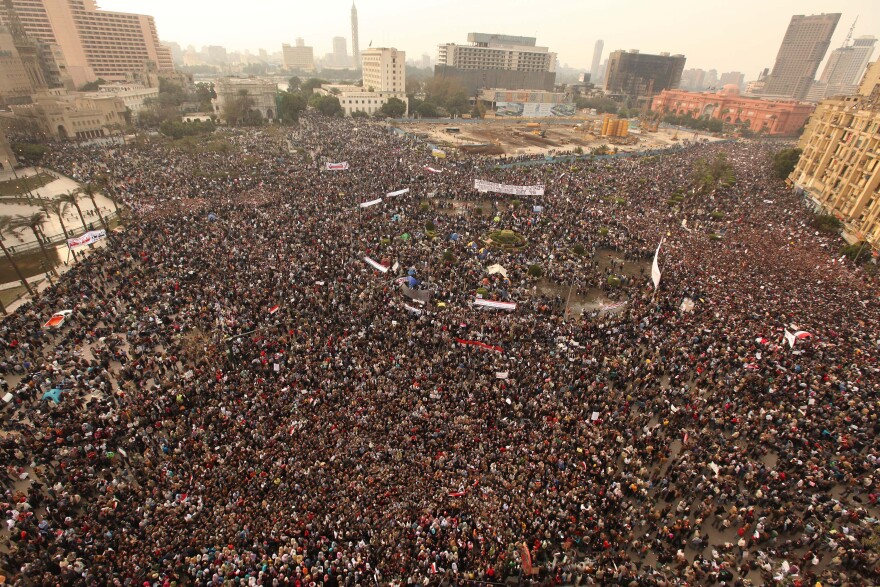Six years ago, the death of a fruit vendor in Tunisia set off a chain of events that became known as the "Arab Spring."
Citizens rose up and toppled their governments in countries like Tunisia, Egypt, Libya, and Yemen. Civil unrest weakened the legitimacy of authoritarian regimes in Syria and Bahrain. Calls of revolution spread like rapid fire across the Middle East.
Fast forward to today, we look at how the region has evolved since that first protest? What’s the public opinion on the new leadership and coalition? How have people adapted to the new norms? A recent study, published by the Carnegie Endowment for International Peace, showed that corruption was the region’s top problem. Titled “Arab Fractures: Citizens, States, and Social Contracts,” the survey revealed that, despite the years of effort, most Arab states are still "facing a crisis in governance.”
Host Larry Mantle sits down with Michele Dunne, one of the lead authors on the study and director of Carnegie’s Middle East Program, and Steve A. Cook, a Senior Fellow for Middle East and Africa Studies at the Council on Foreign Relations, on the six year anniversary of the Arab Spring. What’s your experience with the revolutions? What has changed over the years? Why is it so challenging for democracy to take hold in the region?
Guests:
Bechir Blagui, Angeleno who co-founded Free Tunisia, an advocacy organization for human rights, political freedom and economic development in Tunisia; Blagui also organized a Los Angeles polling station for the Tunisian election
Michele Dunne, director of the Middle East Program at the Carnegie Endowment for International Peace, a foreign policy think tank based in Washington D.C.
Steven A. Cook, Senior Fellow for Middle East and Africa Studies at the Council on Foreign Relations, and author of The Struggle for Egypt: From Nasser to Tahrir Square; he tweets



